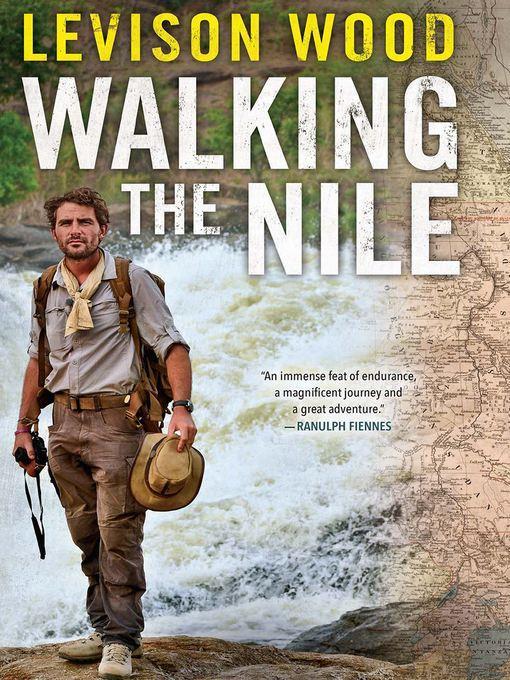
Walking the Nile
کتاب های مرتبط
- اطلاعات
- نقد و بررسی
- دیدگاه کاربران
نقد و بررسی

December 14, 2015
Wood, a British veteran who served in Afghanistan, recounts his ambitious attempt, beginning in November 2013, to walk the entire length of the Nile River: 4,250 miles of water running through five countries. The impetus for the journey was a desire to emulate Western explorers of Africa such as Richard Burton, Henry Stanley, David Livingstone, and John Hanning Speke, whose adventures Wood admired. Wood also sought to meet people and hear their stories. Beginning in Nyungwe Forest in Rwanda, Wood travels through Uganda, South Sudan, Sudan, and Egypt before reaching the Nile Delta and the Mediterranean, following the river through forests, villages, cities, deserts, and—in South Sudan—active war zones and refugee settlements. The narration is unadorned and mostly relays the viewpoints of local guides and porters, who accompany the author through the majority of his trip, and others he meets en route. Wood does provide some history and contextual asides, but he devotes most of his book to sharing the opinions of the people he encounters, which are dynamic and at times surprising. A man in Sudan, for example, laments the end of British rule because of the prosperity that ended with it. These voices, seen through the lens of Wood’s words, make this memoir a success.

November 1, 2015
Walking the Nile has enticed many explorers, but Wood provides an up-to-the-minute portrait of the nations and people that claim the world's longest river. From the moment the author began his journey, at the alleged source of the Nile, he encountered constant conflict and hardship. His guides mistrusted each other. So-called pygmies were reluctant to accept him. He had to fight through every border crossing, and he faced the constant threats of theft, disease, and corruption. Wood is a war veteran, and he was able to improvise his way through dangerous situations, such as firefights in a Sudanese city and an interrogation by secret police. But the trek was not without tragedy: when the author agreed to walk with American journalist Matt Power for a week, Power eventually collapsed and died of heat stroke. "I wanted the cold comfort of English skies again," writes Wood. "I wanted to be anywhere but here, thinking of the man who had died so that he could write about me on my indulgent, pointless, selfish trek." Overall, Wood is a sharp observer and authoritative writer. He takes pains to describe the Rwandan conflict, the Egyptian revolution, the Sudanese civil war, and all the culture clashes in between. But chutzpah and empathy only get him so far. In the end, the author is unable to adequately explain his interest in the Nile, and the book does feel indulgent at times. The story is awkwardly similar to Rory Stewart's The Places in Between, while lacking the immediacy of the Afghan context. Unlike Stewart, Wood accumulated media coverage as he went. By the time he reached the Aswan Dam, he was carrying an article chronicling his passage. This kind of publicity recalls the newspaper frenzy of the Stanley-Livingstone expedition. For adventurers like Wood and Stanley, the Nile is a metaphor as much as a place. Wood delivers a bold travelogue, illuminating great swathes of modern Africa, but as literature, it leaves something to be desired.
COPYRIGHT(2015) Kirkus Reviews, ALL RIGHTS RESERVED.

November 1, 2015
From the dense jungles of Tanzania, Rwanda, and Uganda, to war-torn South Sudan and the arid deserts of Sudan and Egypt, English writer and explorer Wood treks alongside the Nile dodging crocodiles, hippos, and the secret police in an attempt to be the first person to traverse the length of the river. After an unceremonious start, Wood gets blessed by a witch doctor, saves a vervet monkey, nearly runs out of water, and faces a tragic setback that causes him to consider abandoning the journey. Through interactions with locals, Wood creates a portrayal of Africa and its peoples that isn't often presented in the West. Additionally, an overview of each region, which includes a brief history, along with visits to historical and cultural sites, allow this travelog to also provide a glimpse into the soul of the continent. VERDICT Armchair travelers and those looking for a side of Africa not generally seen will find adventure sprinkled with culture and history in this narrative that circumvents the colonial pomp while following in the shadow of the original British explorers of Africa.--Zebulin Evelhoch, Central Washington Univ. Lib.
Copyright 2015 Library Journal, LLC Used with permission.

























دیدگاه کاربران